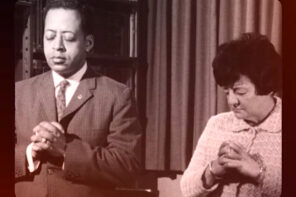You know your summer is not going well when Donald Trump chooses your birthday to come to your place of work and deliver a public address. Other than that, Mrs. Lincoln, how was the play?
The Trump train is rolling into Colorado this Friday (yes, my 55th birthday), and the first stop is my campus–the University of Colorado at Colorado Springs. You, dear reader, will know the flagship campus of the system, CU Boulder, but likely not CU’s fledgling but rapidly growing outpost here in the buckle of the Rocky Mountain Bible Belt.
Naturally, Trump is skipping an appearance in the New Age Nirvana of Boulder for the very good reason that, as Barry Goldwater put it, you go hunting where the ducks are. For Republicans, the ducks are in Colorado Springs specifically, and El Paso County more generally. Following his visit to our rather modestly sized (like his hands) basketball arena, he’ll move on to Denver, where the suburbs are friendly while the city area is hostile.
News of Trump’s visit hit just as I got word that the Clinton campaign was pulling its commercials from the state. Polls suggest that Colorado is a fairly safe state for a fall Clinton victory, while money is desperately needed in key swing states of Pennsylvania and Ohio. This is part of a long-term trend towards turning Colorado purple, and increasingly blue. So it’s not entirely clear why he’s coming at all. But if he is, rousing the base in El Paso County certainly makes political sense, even if a rising Latino vote is likely to derail his train pretty badly.
In response to Trump’s visit, a group of faculty members here began drafting a public letter, pointing out our widespread revulsion to Trump’s dark and divisive rhetoric. The point was not to object to Trump’s visit per se. After all, the university leases its events center to all sorts of events, political and otherwise, as part of its public service and mission. And frankly, as an obscure branch campus of a state university, there’s no such thing as bad publicity. Rather, the point was, of course Trump has the right to come here and speak, but we have the right to speak back.
Various other political candidates–of both parties as well as minor parties–have spoken here in the past, with no such debate or strong feelings raised. Generally they have been Republicans, following the Goldwater principle as noted above. So the question becomes, why raise objections to the content of Trump’s rhetoric specifically, when no such action has been taken before?
The public statement currently being drafted addresses that issue by pointing to Trump’s numerous proclamations that have been either demonstrably “pants-on-fire” false, or beyond the boundaries of civil discourse–starting with his comments on Mexican immigrants and female news reporters last year. (Most of the time both, in fact.)
In commenting on a draft circulating of the public statement, I realized how much of Trump’s rhetoric emanates from a very particular world of faith-based assertion. That’s not to say Trump has any personal connection with that world. Any such claim is laughably unpersuasive, despite James Dobson’s best efforts. Rather, I mean “faith” not in any specifically theological sense, but more in the sense of the evidence of things not seen. (The “substance of things hoped for” is what Trump alone can provide, judging from his RNC address).
Initially, this came in thinking about Trump’s RNC portrayal of an America in grave peril of mass death from drunk drivers who happen to be immigrants, or psychopaths with military skill using an assault rifle. Fact-checkers immediately knocked down the general assertion that crime is “up,” pointing out that crime has been going down for a long time now, for reasons that scholars continue to debate. The same goes for killings of police officers–about half of what they were annually during the Reagan administration. In both cases, the slight upticks over the past year are disturbing exceptions to the trend, but hardly evidence of some mythical crime wave sweeping the country.
But fact-checking is beside the point. Trump’s assertions (“they’re not sending their best”) are generally not “checkable” in any conventional sense. His statement on Wednesday that President Obama was “the most ignorant president in our history,” and his rhetoric on immigrants, NATO, the press, and on and on, are all outside the realm of rational discourse.
That puts them in the realm of statements of faith. And that faith is one consonant with dark visions, paranoid fantasies and a Putinesque view of political reality. It makes it difficult to draft public statements, but it makes it all the more important to do so.
And as a personal aside, to Mr. Trump, for trashing my official celebration of full AARP membership: you suck.





